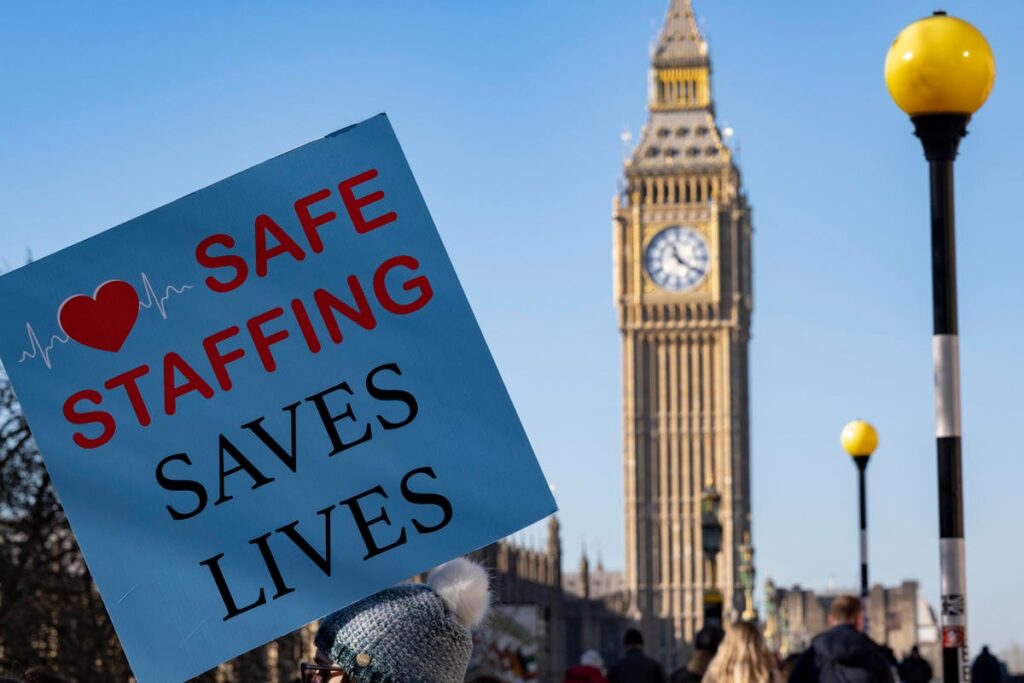NHS Nurses from the Royal College of Nursing form a picket line as they strike for safe staffing … [+]
As one union votes to accept a pay deal for England’s public healthcare staff, another has rejected it — the latest twist in a months-long industrial dispute that’s put intense pressure on the country’s already-beleaguered health service.
Because of the way the unions are structured, it’s likely the pay deal will be accepted, despite significant disagreement amongst members.
Representatives for 12 health unions will vote this Tuesday on a pay deal negotiated last month with government.
This staff council uses an electoral college system, so the unions with the most members get the greatest say. According to industry publication the Health Service Journal, it is likely a majority will vote “yes” this week.
Members of two of the main trade groups — Unison and GMB — want to accept the deal, which will give eligible NHS staff a 5% pay increase as well as a one-off payment of at least £1,250.
But two other big name unions — Unite and the Royal College of Nurses — want to reject the deal and go back to the negotiating table.
Members of the RCN are due to go on strike Sunday evening. Initially intended as a 48-hour walk out, nurses will go back to work early after losing a court case with the government over the legality of their planned action.
RCN leaders want to ballot their members for a further six months of industrial dispute after this weekend’s strike, which falls over a holiday weekend, and will also see a walk out from some ambulance workers.
A significant proportion of the country’s doctors are involved in a separate salary dispute that has not yet been resolved. These medics, who are paid according to a different framework, are not eligible for the pay deal.
Union leaders argue that low pay is not only making it harder for healthcare workers to cover their day-to-day expenses as the cost of living rises, but that it’s contributing to short staffing — a critical safety issue in hospitals.
Other public sector staff like teachers, rail and border control staff have been also been engaged in industrial action for months as wages have failed to keep pace with inflation.
However the NHS vote goes on Tuesday, it’s not clear what impact this will have on the ongoing disputes, given the division between unions.
Industry experts have called on government and union leaders to work together to resolve pay disagreements and help hospitals catch up on huge backlogs of planned care.
Deputy chief executive of hospital leadership group NHS Providers Saffron Cordery, said: “This latest nurses’ strike is hugely challenging for trusts which are working hard to ensure patient safety and minimise disruption for patients.”
Despite some agreements being made to ensure life-and-limb care is maintained, “the situation remains extremely difficult, with a lasting disruptive impact that’s bad for patients, staff and the NHS,” she said.
“We need to see a deal to end the strikes that allows the NHS to get on with key strategic priorities such as tackling backlogs. We urge the government and unions to find a way through this dispute,” she added.


